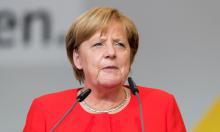Seasonal drop in business activity triggers sag in demand for foreign currency
In January, the demand for foreign currency on the part of the real sector of the economy declined against December 2002, the Russian Central Bank reported. The decrease in the volume of purchased foreign currency was linked to both the seasonal sag in business activity in the real sector of the economy and to a drop in financing of import contracts due to earlier prepaid import supplies.
The volume of repayments for corporate foreign debts plunged considerably this January, too. Thus, in the first month of 2003, current export revenues and demand for rubles triggered the necessity for the Central Bank to purchase foreign currency for preserving the balance on the currency market and for supporting the current exchange rate.
The positive balance of the Central Bank's operations on the domestic currency market this January provided for an increase in official gold and currency reserves by $1.5bn to $49.3bn.
According to the data of the Central Bank, in January 2003, operations of credit institutions on the domestic currency market were determined by trends, formed at the beginning of the year, to a great extent. They were an active transferring of resources to deposits of state authorities at the Central Bank, a decrease in the monetary base, a sharp weakening of the US dollar's position on the international market, and other factors. These factors triggered a drop in ruble balances to RUR61.693bn (about $1.95bn) on January 20, 2003, which was a minimal level over the past three years, an increase in cost of ruble resources, and a decline in the investment attractiveness of US dollars, which encouraged the majority of credit institutions to sell export revenues without delay.
© &to=http://www.rbc.com' target=_blank>RBC
Subscribe to Pravda.Ru Telegram channel, Facebook, RSS!





